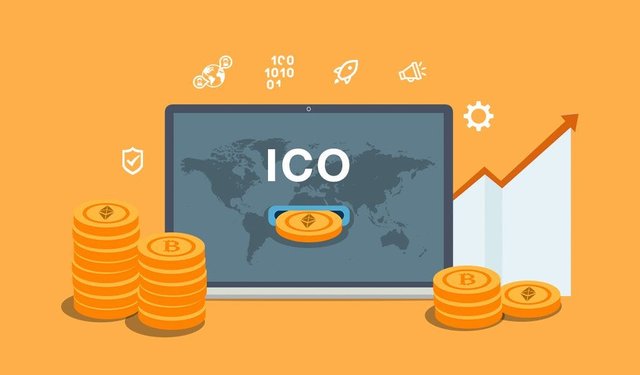How Can ICO Development Influence the Education Sector in 2024?

Initial Coin Offerings (ICOs) have significantly transformed various industries by providing new methods of raising capital and fostering innovation. As we progress through 2024, the influence of ICOs on the education sector is becoming increasingly prominent. By leveraging blockchain technology and cryptocurrency, ICOs are offering novel solutions to longstanding challenges in education, from funding and access to administrative efficiency and personalized learning. This blog explores the ways in which ICO development can impact the education sector, highlighting its potential to drive positive change and innovation.
Understanding ICOs in the Context of Education
ICOs are fundraising mechanisms where new cryptocurrencies or tokens are issued to investors in exchange for established cryptocurrencies like Bitcoin or Ethereum. These tokens often represent a stake in a new project or service, providing investors with a potential return on investment. In the context of education, ICOs can facilitate the development of new educational platforms, tools, and resources, while also offering a means for educational institutions to secure funding directly from their communities.
Revolutionizing Educational Funding
One of the most significant impacts of ICOs on the education sector is the potential to revolutionize educational funding. Traditional funding models, including government grants and private donations, can be slow and restrictive. ICOs offer a more flexible and accessible alternative:
Direct Investment: Educational institutions and startups can raise funds directly from a global pool of investors without relying on intermediaries. This approach can democratize funding opportunities and allow for more diverse educational projects to come to fruition.
Crowdfunding Education Initiatives: ICOs enable educational projects to engage with a wider audience of potential supporters. For example, a new online learning platform or innovative educational tool can be funded through an ICO, allowing early adopters to invest in and support the project’s success.
Tokenized Rewards: ICOs can also introduce tokenized reward systems for backers, such as access to exclusive educational content, early access to courses, or discounts on educational services. These incentives can drive greater participation and investment in educational initiatives.
Enhancing Access to Education
Access to quality education remains a significant challenge globally, particularly in underserved regions. ICOs can play a crucial role in addressing these challenges by:
Funding for EdTech Startups: ICOs can provide the necessary capital for EdTech startups focused on creating educational resources and platforms for remote and underserved communities. This includes developing low-cost or free educational tools and resources that can be accessed via mobile devices.
Decentralized Learning Platforms: Blockchain technology, facilitated by ICO development, can support the development of decentralized learning platforms. These platforms can operate on a global scale, reducing barriers to entry and making high-quality education more accessible to individuals regardless of their geographic location.
Scholarship Programs: ICOs can be used to fund scholarship programs through token sales. Educational institutions or nonprofit organizations can issue tokens to raise funds specifically for scholarships, thereby increasing opportunities for students who might otherwise be unable to afford education.
Improving Administrative Efficiency
ICOs and blockchain technology can also enhance administrative efficiency within educational institutions:
Transparent Record-Keeping: Blockchain’s immutable ledger can provide a transparent and secure way to manage academic records, certifications, and credentials. This transparency can reduce fraud and streamline verification processes for employers and other educational institutions.
Smart Contracts for Administrative Tasks: Smart contracts—self-executing contracts with the terms of the agreement directly written into code—can automate various administrative tasks, such as managing student enrollments, tracking attendance, and processing payments for tuition or fees. This automation can reduce administrative overhead and improve efficiency.
Streamlined Grant Management: ICOs can also streamline the management of research grants and funding allocations. By utilizing blockchain technology to track and manage grants, institutions can ensure funds are used appropriately and transparently, fostering greater accountability.
Promoting Personalized Learning
Personalized learning, which tailors educational experiences to individual students’ needs and preferences, is another area where ICOs can make a significant impact:
Tokenized Incentives for Learning: Educational platforms can use tokens to incentivize students to engage with personalized learning content. For example, students could earn tokens for completing lessons, participating in discussions, or achieving certain milestones, which can then be redeemed for additional resources or privileges.
Blockchain-Based Learning Analytics: Blockchain technology can enhance learning analytics by providing a secure and comprehensive record of students’ progress and achievements. This data can be used to tailor educational content and experiences to individual learning styles and needs.
Decentralized Learning Communities: ICOs can facilitate the creation of decentralized learning communities where educators, students, and experts collaborate and share resources. Tokens can be used to reward contributions and participation within these communities, promoting a more dynamic and interactive learning environment.
Addressing Challenges and Considerations
While the potential benefits of ICOs in the education sector are significant, there are also challenges and considerations to address:
Regulatory Compliance: ICOs are subject to varying degrees of regulatory oversight depending on the jurisdiction. Educational institutions and startups must navigate these regulations to ensure compliance and avoid legal issues.
Security and Privacy: The use of blockchain and cryptocurrency involves sensitive data, making security and privacy a top priority. Institutions must implement robust security measures to protect personal and financial information.
Market Volatility: Cryptocurrency markets can be highly volatile, which may impact the stability of funds raised through ICOs. Institutions must carefully consider the risks associated with cryptocurrency investments and develop strategies to mitigate potential fluctuations.
Conclusion
The influence of ICO development on the education sector in 2024 is profound and multifaceted. From revolutionizing funding mechanisms and enhancing access to education to improving administrative efficiency and promoting personalized learning, ICOs offer innovative solutions to many of the challenges faced by educational institutions and learners. However, as with any emerging technology, it is essential to approach ICOs with a clear understanding of the associated risks and considerations. By leveraging the benefits of ICOs while addressing potential challenges, the education sector can harness the power of blockchain technology to drive meaningful and positive change.